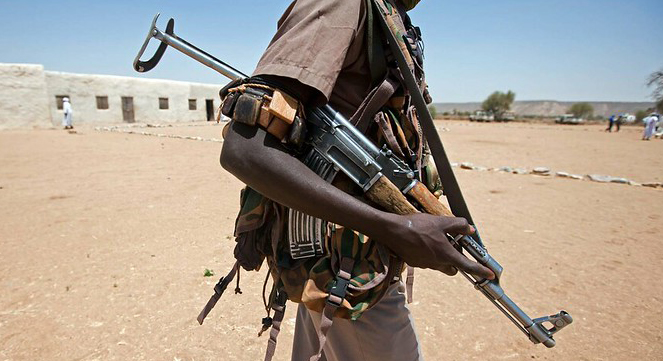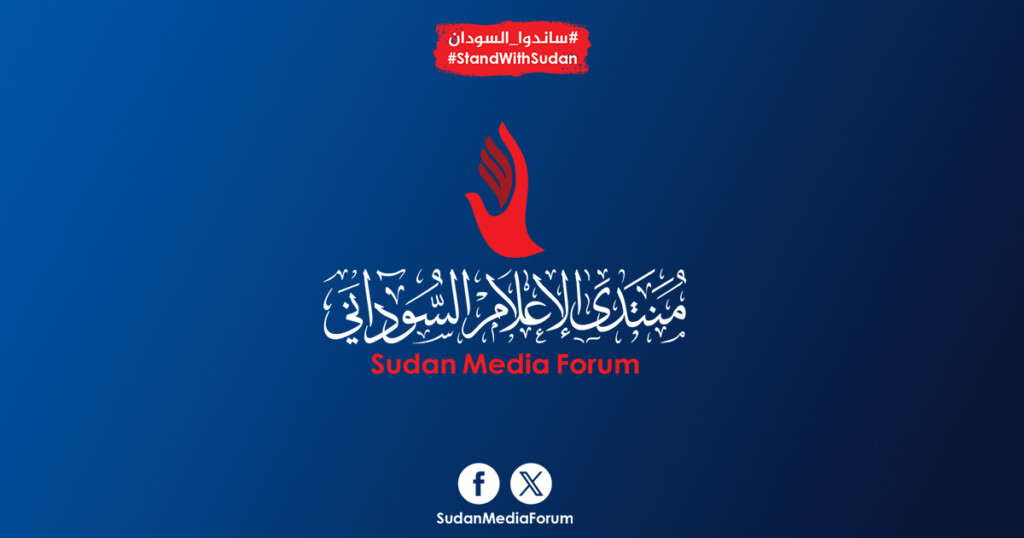Sudan’s RSF ‘stoke ethnic tensions with tribal recruitment’

Darfur gunman (File Photo: Albert González Farran / UNAMID)
Sudan Media Forum*: Joint Editorial Room
Prepared and edited by Sudan Tribune
Sudan’s paramilitary Rapid Support Forces (RSF) have launched an intensive recruitment campaign in Darfur and Kordofan, mobilising fighters along tribal lines. This move has amplified concerns that Sudan’s ongoing conflict could devolve into widespread ethnic violence, further prolonging instability in the war-torn nation.
The RSF, led by Commander Lt Gen Mohamed ‘Hemedti’ Dagalo, tasked tribal leaders to rally fighters, aiming to deploy them to hotspots, including Khartoum and El Fasher in North Darfur. The recruitment, conducted regionally, has stirred fears that it will deepen inter-tribal hostilities. Following Hemedti’s call on October 9 for a “general mobilisation,” RSF leaders accelerated the enlistment of fighters from various tribal groups, fuelling apprehension of an escalating ethnic dimension to the conflict.
Tribal mobilisation
The RSF’s recruitment methods have heavily relied on tribal affiliations. Notably, Emir Mukhtar Babu, a leader of the Misseriya ‘Arab’ herders tribe, rallied his followers in West Kordofan’s El Mujlad, marking his first public appearance since the war began.
The Misseriya, historically aligned with the RSF, have a substantial presence in the force’s leadership. For the Misseriya, fighting alongside the RSF is framed as a “sacred duty” to preserve their standing and prevent potential reprisals should the Sudanese Armed Forces (SAF) emerge victorious.
Leaders of the Misseriya openly voice support for the RSF, citing fears of genocide against allied tribes. “We will fight alongside the RSF until the last soldier,” declared one Misseriya leader, underscoring the existential battle they feel they face.
Internal divisions
Some tribal leaders initially resisted the RSF’s expansion into West Kordofan, fearing regional destabilisation. Last December, Misseriya leaders warned the RSF commander against transferring hostilities to their areas, expressing concerns over border security and oil facility safety.
Yet, despite these warnings, the RSF launched unsuccessful assaults on towns like Babanousa, ultimately shifting focus to El Fula, the capital of West Kordofan, where they eventually gained control.
In South Darfur, tribal leaders have also mobilised, embedding ethnic, tribal, and racial rhetoric into their recruitment drives. Prominent leaders such as Muhamed Yagoub, from the Ta’aysha tribe, have called on their tribesmen to join the RSF ranks, deploying fighters and bolstering RSF’s hold over the region.
Training camps
The RSF’s tribal mobilisation efforts are driven by influential leaders, also among the large Rizeigat herders tribe, who have galvanised fighters within their communities. Each tribe has established training camps to prepare recruits, such as those reported across South Darfur.
Ali Mansour, a journalist based in South Darfur, observed that the RSF’s recruitment methods encourage plundering, fuelled by divisive ethnic rhetoric. “This tribal mobilisation sets a dangerous precedent, where looting and violence are justified as a means of survival,” Mansour said.
Undermining reconciliation
Darfuri lawyer Abdelbasit El Haj warned of long-term repercussions of ethnically-based recruitment for Sudan’s social fabric. According to El Haj, RSF’s tribal-based recruitment threatens to entrench ethnic divisions, undermining prospects for social reconciliation and fostering economic instability.
The RSF’s structure reflects the infamous “Janjaweed” militias, accused of war crimes in Darfur since 2003, and whose legacy continues to sow seeds of discord, he stated.
As the RSF rallies fighters with promises of wealth and power, some communities are beginning to resist, fearful of the cost in human lives. With young people from Darfur already decimated by years of conflict, locals are increasingly wary of committing another generation to what seems an endless war.

This report was prepared in partnership with the Sudan Media Forum’s member organisations.
#SilenceKills
#الصمت_يقتل
#NoTimeToWasteForSudan
#الوضع_في_السودان_لا_يحتمل_التأجيل
#StandwithSudan
#ساندوا_السودان
#SudanMediaForum
#منتدى_الإعلام_السوداني
*The Sudan Media Forum is a coalition of independent media outlets and organisations including:
– Dabanga – Radio / TV / Online
– Sudanese Journalists Syndicate
– Sudan Tribune
– Al-Tayar newspaper
– Aljreeda Newspaper
– Sudan-Bukra Media Org
– Altaghyeer newspaper
– Ayin Network
– Alrakoba.net
– Sudanile.com
– Journalists for Human Rights – JHR – Sudan
– Female Journalists Network-Sudan
– The Democrat Newspaper
– Hala Radio – 96 FM
– Radio (PRO FM) 106.6
– Medameek newspaper
– Darfur 24
– Al-Ayam Center for Cultural Studies and Development
– Teeba Press
– Alalg Center for Press Service
– Sudanese Center for Research, Training, and Development Services
– Article Center for Training and Media Production
– mashaweer-news.com
– Sudans Reporters
– Televzyon Platform








 and then
and then